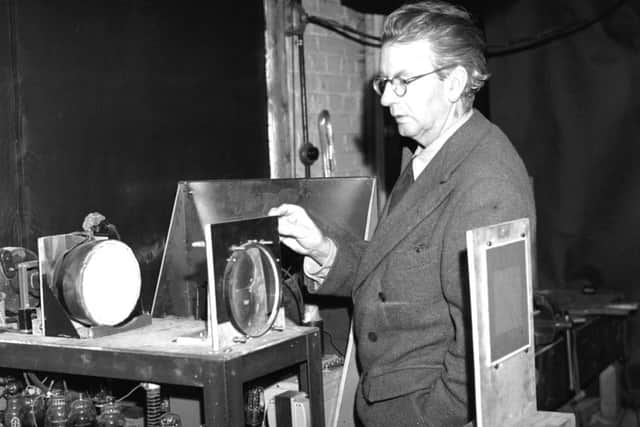Revealed: The most significant breakthroughs from Scotland's universities
The achievements are part of a list of the UK’s Best Breakthroughs List celebrating the global impact of inventions, discoveries and social initiatives from universities which have had a transformational impact on people’s everyday lives.
The inventions are part of the #MadeAtUni campaign which aims to show universities do more than just teach students, that they are also using their expertise to make a vital difference in health, technology, the environment, family, community, culture and sport.
Advertisement
Hide AdAdvertisement
Hide AdIndependent research by Britain Thinks found that research is one of the key triggers to changing public opinion about universities.


The work of Helensburgh-born John Logie Baird (1888-1946), the inventor of television, was nominated by the University of Strathclyde. Baird studied electrical engineering at the Royal Technical College in Glasgow, as the university was then known.
The list, compiled by Universities Scotland and Universities UK, the umbrella list for universities, also highlights less celebrated but vital breakthroughs.
From across the rest of the UK comes a specially-designed bra to improve the treatment of women having radiotherapy, research into the causes of gaming and mobile phone addiction and new technology that turns urine into electricity which has the potential to transform the lives of millions of people in the developing world.
Abertay University created the world’s first computer games degrees in 1997 and remains at the forefront of this rapidly growing sector worth more than £5bn in the UK alone.
The university’s achievements include games simulations to assist cancer treatment, interactive training tools for police and the fire service, a virtual reality project cataloguing the memories of war veterans, and a unique digital geotagging performance capturing Dundee’s links with Timex and the ZX Spectrum computer.
Professor Nigel Seaton, principal of Abertay University said: “Universities make a vital contribution to our society, culturally, socially and economically. This list highlights the full breadth of that and the transformative impact it has.”
The University of St Andrews is highlighted for the work of the Scottish Oceans Institute, which has brought together over 300 staff to promote interdisciplinary marine research.
Advertisement
Hide AdAdvertisement
Hide AdThe collaboration identified a marine invertebrate which can regenerate major body parts, which may unlock new understandings of regenerative medicine and stem cell research. They have also improved fish welfare and reduced porpoise bycatch by 90 per cent around the UK.
Professor Sally Mapstone, principal of the University of St Andrews, highlighting the achievements of her university and those of nearby Dundee and Abertay universities, said: “It says much for the strength of higher education in this one corner of Scotland that its three universities are recognised in this important list.
“Universities like St Andrews, Abertay and Dundee are hugely important engines of invention and drivers of social mobility, and it is not an exaggeration to say that the ideas and discoveries made here have changed and are continuing to change the lives of millions of people.”